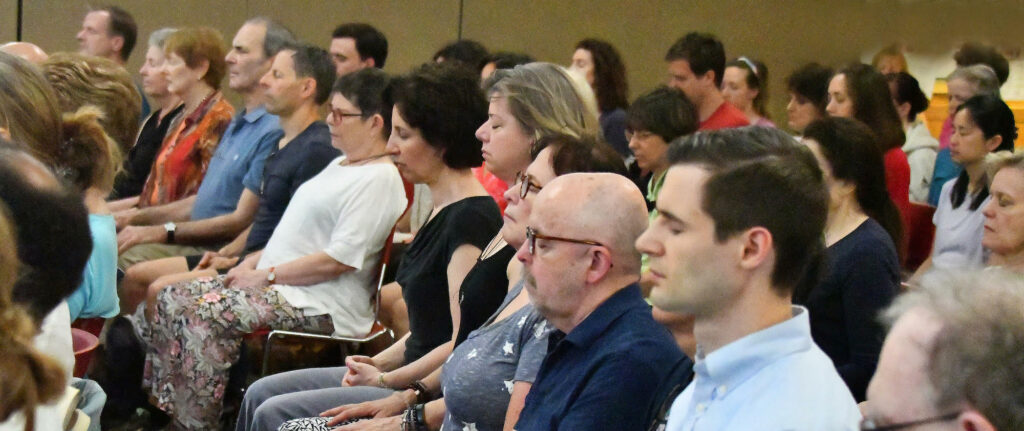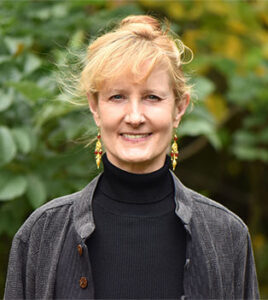About CMC
Our Mission
The Community Meditation Center exists for all who would seek a more joyful and meaningful life. Through the exploration and practice of Buddhist teachings we seek to develop greater mindfulness, compassion, wisdom, and lovingkindness. By gathering together in community we support one another in our efforts to alleviate suffering and distress in ourselves and in the world.
CMC welcomes all regardless of race, religion, color, age, gender, sexual orientation, disability, economic, or social status.
Our Values
CMC is committed to creating and maintaining a favorable environment in which the teachings of Buddhism can be offered, studied and practiced.
The principles of mindfulness, compassion, lovingkindness and generosity are offered through teachings, meditation, retreats and other methods led by CMC’s Guiding Teacher and various guest teachers. These offerings are made with the aspiration of creating a warm, welcoming, and nourishing environment for people of all identities, including all races, sexualities, genders, ages, abilities, and languages. We recognize and embrace not only the diversity of the sangha and the various communities of which each member is a part, but also diversity of practice. We are committed to welcoming teachers of various backgrounds and lineages.
What is sangha?

Sangha is a Sanskrit and Pali term frequently used in the west to refer to a Buddhist community. A sangha is a community of sentient beings practicing the dharma together in order to develop and maintain mindfulness, and ultimately to cultivate insight and wisdom. The essence of a sangha is understanding, acceptance, support, and kindness. When you find these elements in a community, you know that you have found a jewel.
The Community Meditation Center is a sangha of lay people led by a Guiding Teacher in the Buddhist tradition. While nuns and monks, to this day, commit to an extensive set of rules as found in the Vinaya (discipline), CMC teachers and board members commit to five basic precepts taught by the Buddha. All who attend CMC sessions are invited to consider these precepts as guides in daily life.
“As long as a society holds regular and frequent assemblies, meeting in harmony and mutual respect, they can be expected to prosper and not decline. As long as a society follows the long-held traditions of wisdom, and honors its elders, they can be expected to prosper and not decline. As long as a society protects the vulnerable among them, they can be expected to prosper and not decline. As long as a society cares for the sacred places of the natural world, they can be expected to prosper and not decline.”
Parinirbbana Sutta
The Five Precepts
To Not Steal
Aware of the suffering caused by stealing, exploitation, and social injustice, I am committed to working for the benefit of all beings. I will practice generosity by sharing my time, talent, and financial resources with those who are in need, and those who will use them to benefit others. I am determined not to take what is not freely given, and what should belong to others.
To Not Kill
Aware of the suffering caused by harming living beings, the planet, and the atmosphere, I am committed to protecting the lives of all beings and the environment. I am determined not to kill, to prevent others from killing, and not to support any act of killing, in my thinking, and in my way of life.
To Not Abuse Sexual Energy
Aware of the suffering caused by the abuse of sexual energy, I am committed to respecting the integrity of individuals, couples, families, and society. I am determined not to engage in sexual relations without wisdom and careful consideration. I am determined to respect my commitments and the commitments of others. I will do everything I can to protect children and other vulnerable beings from sexual abuse.
To Not Lie
Aware of the suffering caused by unskillful speech and the inability to listen, I am committed to cultivating skillful speech and skillful listening. I will speak truthfully, with words that can inspire others, and bring joy and hope. I will not spread news that I do not know to be true, and will not criticize things of which I am not certain. I am determined to speak with wisdom and compassion and will avoid words that can cause divisiveness in the family or community. I will make efforts to reconcile and resolve all conflicts, however small.
To Not Abuse Intoxicants
Aware of the suffering caused by unmindful consumption, I am determined not to abuse alcohol, drugs, or any other intoxicant, or to ingest foods or other items that contain toxins, such as certain TV programs, magazines, books, films, and conversations. I will work to transform greed, hatred, and delusion into generosity, compassion, and wisdom in myself and in society.
Our History
Community Meditation Center began as an intimate gathering of 7- practicing meditation and exploring the dharma with founders, Allan Lokos and Susanna Weiss. As the endeavor grew, Allan began discussing the possibility of opening a dharma center with his teacher, Sharon Salzberg.
In 2007 the Community Meditation Center officially opened its doors. The founding Board of Directors named Susanna as CMC’s Executive Director and Allan as the Guiding Teacher.
At first, Allan thought CMC’s growth was slow, since after three or four months attendance averaged fewer than twenty people. Then came a great awakening: it was not the number of people who attended that mattered, but rather, were they reaching just one person? That became the heart of CMC’s mission; to help, to serve, to support through the teachings and practice of the Buddhadharma.
In late 2012, Allan and Susanna were seriously injured in a plane accident in Burma. Though seriously shaken, CMC’s Board of Directors took immediate action. They assumed Susanna’s executive duties and brought renowned dharma teachers to fill in for Allan and keep CMC going. Susanna healed slowly and Allan defied medical opinion and survived. They both returned to their beloved sangha barely four months after the accident.
Throughout this crisis, CMC’s leadership expanded its faculty and community of volunteers. CMC grew to offer sessions on Sundays and Wednesdays, attracting more than 6,000+ visitors in a typical year.
During the Covid-19 pandemic, CMC pivoted to offer sessions online, attracting an increasingly global sangha.
In 2021, CMC’s founding Guiding Teacher and Executive Director stepped down. We thank them for their vision, leadership, and wisdom.

Alan Lokos
Founding Guiding Teacher Emeritus

